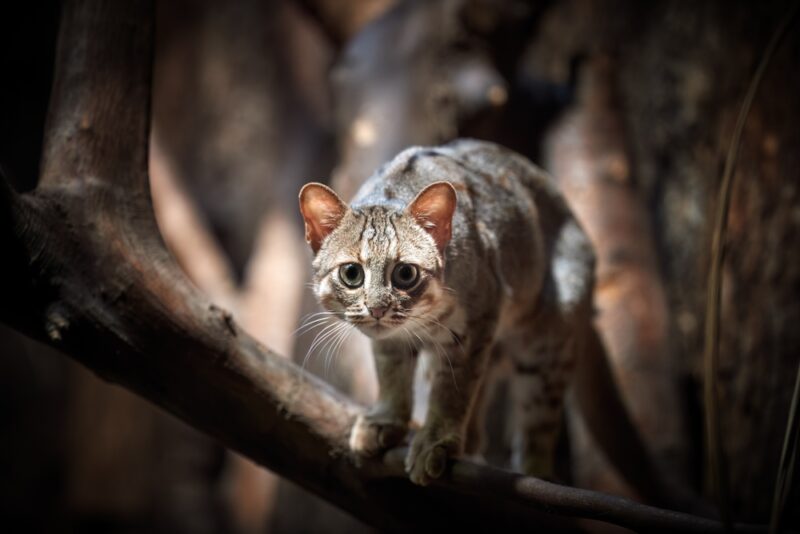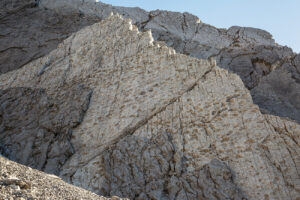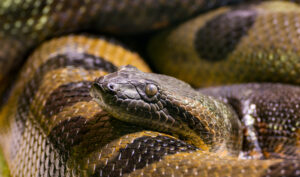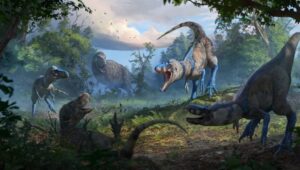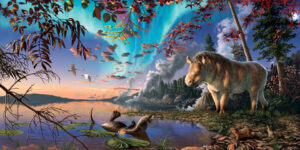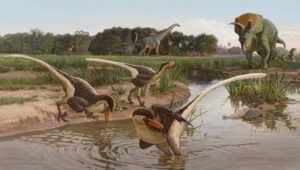Archaeologists have unearthed the smallest cat species ever to roam the Earth. They found a lower jaw and two teeth from a palm-sized feline in the Hualongdong Cave, China.
The researchers believe it is an extinct type of leopard and named it Prionailurus kurteni. It is much smaller than the leopards that still exist today and weighed just one kilo.
“This cat is clearly smaller than a domestic cat,” said lead author Qiagao Jiangzuo.

The jaw fragment of Prionailurus kurteni. Photo: Qigao Jiangzuo et al., 2024.
The extinct feline measured between 35 and 50cm, making it similar in size to the smallest living wild cats — the rusty-spotted cat (Prionailurus rubiginosus) and the black-footed cat (Felis nigripes). Finding fragments of cat fossils is not unusual, but the researchers were surprised to find such a tiny species that was also an ancestor of leopard cats.
Leopard cats live in open forests, so it is rare to find their fossils. The sheltered cave helped preserve the little jaw fragment. Why the cat was in the cave is a mystery.
Aged between 275,000 and 300,000 years ago, it would have existed at the same time as ancient humans, whose remains also turned up in the Hualongdong Cave. One theory is that the food scraps from these early peoples attracted both rats and the tiny cats.
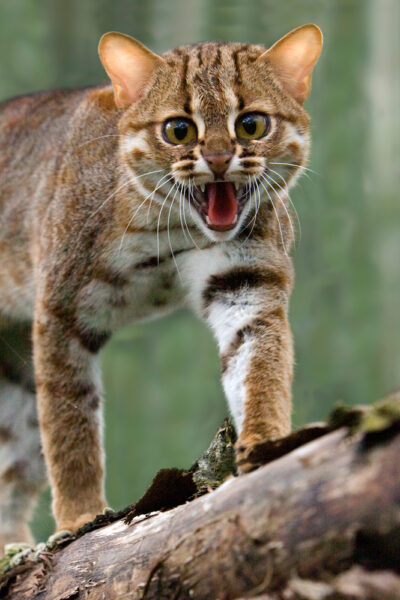
Rusty-spotted cat. Photo: Shutterstock
Previous excavations in the rich cave have also uncovered brown bears, voles, lemmings, and muskrats, even an extinct species of panda. The human remains were some of the earliest found in East Asia. Their mix of features suggests they were evolving into Homo sapiens.
At first, researchers thought the ancient humans might have eaten the cats, but the jaw featured no butchery marks.
